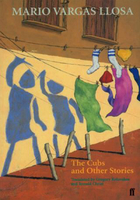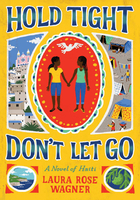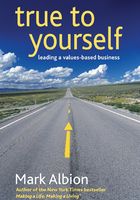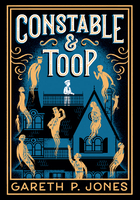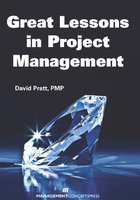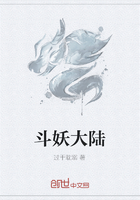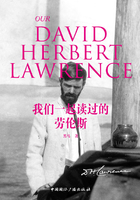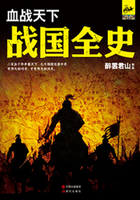THE TROUBLE WITH MAKING A BEANPOLE teepee is that summer usually ends before all the beans reach the top, or that the beans stop reaching for the top before summer ends. You can trick a sunflower by putting a paper bag over its head for a few hours out of the day; it will think that it's in the shadow of another sunflower, and it will try to become bigger and taller. But you must always take the bag off by noon, because if it doesn't get any sun at all, it will simply give up, and it will lie down, with its flower still facing the sky, which is far too sad a sight for summertime. Beans, however, once comfortably stretched out on a net of sticks and string, tilted toward the sun, will get sleepy and thick but will have no reason to continue to reach.
The other trouble with a beanpole teepee is that nothing grows beneath it. You will wait all summer long, which for a child is both a lifetime and an instant, and then you will crawl inside and find it to be unexpectedly dark and damp. You will feel the cold wet on your knees through your jeans before you are even all the way inside because you have watered it so many times, hoping to make it grow thick and tall, that the earth inside will be almost black with mud. You will drag in a towel or a blanket or something else, but that too will eventually feel wet, and then you will not want to go back into your beanpole teepee, and you will forget that you left some of your favorite things inside it when you went there on the longest day of the year, before its days became numbered.
This is why you should make a teepee out of plastic flowers. I know you must think I am very tacky, or very lazy, but here is what I can promise you: that when you are finished and you crawl through the opening and into your small house, you will feel whole, and satisfied, and your mind will be settled. To make anything by hand, whether it is to feed or to warm or to shelter yourself, to succeed in meeting some small—or not small—need that exists within us, this is what we and every other thing with a heart that walks this earth are meant to do with our hands and with our days. And when you are inside a structure that you have built yourself, whether your walls are made of plastic or grass or brick or beans, you will be at home.
I know this because, when I was a child, I lived on land inhabited by people who lived in houses that they had built for themselves, by hand. The only thing that these three houses had in common, apart from their rural route delivery address, was that they were built without a working knowledge of architecture or construction. All three houses, plus a century-old farmhouse that we all called The Red House, were within distant sight of each other, along the last half mile of a narrow dirt road that climbed into the mountains, growing narrower and grassier and eventually becoming a simple trail that could easily be lost before it disappeared completely into the woods.
The smallest house, and the first house that you would drive past, belonged to Donald Combs. The mountaintop was owned by my maternal grandfather, who had bought it from the Combs family, who had been there for a very long time. One of the conditions of the sale was that the family's youngest son, Donald, could stay in the small house that he had built for himself. Buying land in northern Vermont can be tricky.
We were told that Donald had been in his mother's belly when she was washing the dinner dishes, one night long ago. She had both of her hands in the water when the house was struck by a ball of lightning that had come rolling down the side of the mountain, and the water in the sink became electrified, causing Mrs. Combs to be thrown clear across the room and against the wall. She had recovered, but Donald was not like her other children, and she blamed the lightning ball.
When the processes of operation on small dairy farms were modernized in the early 1960s, mountaintop farms like the Combses' could no longer survive. Donald's extended family packed up and moved onward, to the Midwest, but Donald did not want to go anywhere. According to my grandfather, who arrived to pay for the land in cash and found the Combs family waiting for him, their cars and trucks heavily packed, Donald did not seem sad to see them go and waved them on, standing barefoot in a soft, cool patch of clover and buttercups, more than six feet tall and thin as a green bean and with the wide, excited smile of a child. When they were gone, he walked back to his little two-room house, which was made of plywood and tin and had a dirt floor. There was no running water or electricity; he had a small, black wood-burning cookstove that had a single-burner plate, and there was an outhouse that sat just downhill, at the bottom of a trail through thick green brush. In every season but winter, we would make an unsupervised pilgrimage to his house almost every day, where he would welcome us in with a broad, gappy smile, and give us silver coins and bottle caps and bent nails, and tell us that we were beautiful girls. We understood that Donald was different, and special, and harmless, and kind. When we had a wasp's nest that needed to be taken down or a raccoon that needed to be intimidated, one of us would be sent to get Donald. He would walk back home with us, always barefoot, with his shotgun over his shoulder.
Donald also liked to talk. He wasn't much of a conversationalist, just more of a talker. You could get stuck for hours if you slowed down in front of his house and he saw you in time to get in front of your car. Sometimes his fly was wide open. He wore clothing that looked to have been army issue, with his pants always slightly too short, sitting just above his narrow ankles and broad, long feet. He was barefoot by choice or habit, sometimes even when there was snow on the ground, and even when he was chopping firewood, and we made a game of counting his toes each spring. The number changed enough to keep things interesting. He was already an old man when we knew him as children, and had lost nearly all of his teeth. A family friend, a young woman who loved my uncle, took him into town one summer and bought him a set of teeth, and afterward he smiled even wider. When Donald, at a very old age, died peacefully in his sleep, there were over a hundred people at the wake, an event that was a silent, reverent testament to a man who had not hurt or angered, or even bested, a single person in his long lifetime, and had not made a single enemy. His life had been solitary and self-sufficient, and he had lived almost all of it in that small tin shack.
The house that my parents built could be seen from the road just past Donald's place, but you had to park and walk up the hill, through a pasture, to reach it. Theirs was a geodesic dome based on Buckminster Fuller's designs. It was a brave thing to do, especially considering the building site, which was at the top of the mountain surrounded by a thousand acres of wilderness in northern Vermont, with nothing but dairy farms and small towns for fifty miles in every direction beyond. I remember little, but I do recall very clearly the feeling of waking up inside that huge space, which was not divided by walls, and looking up into that vast kaleidoscope of a ceiling to the clear panel at the very top of the roof. I remember knowing that my mother, my twin sister, and my father were all asleep with me in that one round room, and I remember what that felt like. I do not remember that I felt poor, or hungry, or cold, but I know that I was probably all three of those things. The feeling that has stayed with me from that moment is the feeling of being home. I could not have known then about mortgages or rents, but I understood in the way small children can that this place belonged to us and not to anyone else.
I think we lived there for only a year or so. There was eventually a small fire, I think, and then maybe a failure of part of the structure, a cold winter, a period of poverty, a Vietnam war, a lack of jobs. Maybe the dome itself worked, but the world around it just didn't; maybe it was the other way around. It's hard to remember or know exactly. When we did abandon it, we didn't go far. My uncle Mike lived at the bottom of the hill in the stone house that he had built, and The Red House at the end of the road filled up with our cousins every summer, with their mothers who drove shiny station wagons and their tennis racquets and their gainfully employed fathers. Among that summerhouse circle, the dome quickly became our storied but ruined homeland. Our cousins came from Bethesda and Brooklyn, Land of Excellent Public Schools and Ballet Classes. We came from The Dome, Land of Shoelessness, Unplanned Kittens, and Head Lice. It stayed with us for a very long time. I could tell by the way my cousins used the term "The Dome" that their parents had always doubted it. And while I admit feeling awkward and different because of it, I also remember something else. I remember feeling brave.
I missed living on that mountain after we left the dome. The summerhouse wasn't our house, even though we were there as visitors a lot. We were not allowed to take food out of the cupboards or fridge, and we did not have beds there. Our cousins did, each of them with a nail in the wall where they could hang their swimsuits and hats. Their mothers, our aunts, would hang their wash on the clotheslines and tuck their children in at night, after dinners around a big, round wooden table, and then we would walk through the cold grass to my mother's car and go back to our own home, the schoolhouse, which was where we lived now, on the other side of the valley, on another mountainside. But I would remember when that hillside belonged to us. These aunts and uncles and their children had begun to spend their summers there regularly just as we had abandoned the dome, and when we visited them, they treated us like guests. Once, my aunt Jane teased me in a sweet way, telling me that there was a secret swimming pool hidden in the trees, and I realized that she didn't know that I knew this place, that I already loved this place. In the afternoons, while my cousins played and ate peanut-butter-and-jelly sandwiches and read Mad magazines, I would walk into the meadow between The Red House and where the dome had been and find patches of goldenrod, which my aunt Carol was allergic to, among the tall grass, and I would bend the tips into a bunch and tie them together with long pieces of grass that I would soften by wrapping them around my hands until they bent easily enough to use as a sort of string. Then I would get on my knees and use my hands and arms to push the stalks of grass and goldenrod apart at the base, flattening them down, to make a small tunnel. I would crawl inside and lie down and close my eyes. The air would be full of pollen and warm dust; the layers of old grass under me would smell like old, damp hay, and because it wasn't anyone else's home, it felt like mine.
Below the dome site, on a wide shelf that clung to the side of our mountain, which had been grazed heavily by the Combses' cows for decades until it was a rich green carpet, was my uncle Mike 's house. Mike had built his house with his own hands, out of stone, when he was only eighteen years old. It stood in the spot where Donald's parents' house had once stood, and we liked to look up the mountainside from his porch and try to find the scar left on the treetops by the lightning ball. Mike had a beautiful wife, when I was young, and together they built a barn and kept horses and sheep. He lived in that house for the rest of his life, almost four more decades, with four generations of Irish setters and a string of women before and after his wife was gone, all of them beautiful and smart and tragically, desperately in love with him. No one loved Mike casually, or temporarily. There is a vein of talent that runs with a randomness through every generation in my family, a gift, a powerful collision of beauty and humor and ability, but with a dark and brutal temper that Mike had, too, and in the end he had less than nothing left. He could never leave that stone house; the place was a part of him and depended on him and defined him, so everyone, in the end, left him instead. Even us.
I like to make my teepees out of beanpoles and large pieces of netting designed to be spread over cherry trees, which are both readily available at hardware and garden supply stores. You'll need at least six 6' (1.8 m) bamboo or synthetic beanpoles, enough green or clear netting (?" [2 cm] mesh is best) to cover the poles (one 14' x 45' [35.5 x 114 cm] piece should be more than enough); plastic zip ties long enough to generously wrap around the poles you use; and an assortment of leafy, long-stemmed plastic flowers. To begin, tighten a plastic zip tie around one of the beanpoles, about 8" (20 cm) from one of its ends. Tether a second pole to the first by slipping on another zip tie just below the first and wrapping it around both poles. Repeat with the remaining 4 poles. When all 6 poles have been zip-tied, stand the stack of poles upright zip-tied end up, and spread them apart at the base. Cover the teepee with the netting, leaving an opening on one side for a door. Weave the plastic flowers into the netting diagonally, overlapping flowers and their stems where possible. To make your teepee steadier and mobile, use sticks, shorter poles, or wooden dowels as cross-pieces to link the bottom ends of the 6 main poles to one another.
Donald's house still sits on the dirt road today, with its tin roof. At first glance it seems unusually suited to survival in that climate, compared to the ones that my family left behind, yet it may outlast them all. Wood and stone, after all, are organic materials; tin and plastic are not and cannot be digested by the land they sit on. Donald's family name and mine can be found together in the tiny graveyard at the end of the road. My grandmother's grave is marked by a simple, tasteful Gothic cross of stone. She was a woman of exacting taste and style. A few yards away lies a member of the Combs family, under a glossy granite tombstone emblazoned with an image of a gleeful man on his Ski-Doo snowmobile.
For fifteen years or so after we left the dome, we could still see it clearly from the road, its bare skeleton of big beams rising up among an increasingly overgrown meadow. Eventually the trees around it grew, and its beams were salvaged and used for something else. No one has grazed horses or cows or sheep there for more than twenty years, so even the cleared patch of meadow around it and the flat expanse where my mother's vegetable garden and my beanpole teepee were have now been completely overtaken by a young forest of birch and maple. I hiked around up there a few years ago and found nothing of the structure itself left. I wasn't even sure I was in the right spot until I found, gleaming white on the forest floor and surrounded by thick moss, the big porcelain double sink that had once stood in our kitchen. Had it not been such a surreal thing to find in the middle of the woods, and had it weighed less than fifty pounds, I would have carted it back with me, not just for the sake of nostalgia, mind you, but because it was a beautiful sink. It was the kind of sink that, if I had come across it at the 25th Street flea market in New York City, I would have paid a fortune for, found a way to drag home ten blocks, and redesigned my kitchen around. Removing it from its natural habitat, however, seemed like a sacrilege.
Mike's house is a ruin now. It suffered a fire that took its roof and several of its most important beams. The outer stone walls and giant chimney remained, but Mike wasn't young enough or strong enough anymore to rebuild it. He brought a school bus onto the property, and he and his girlfriend lived there until a few years later, when he died. The way it all looked to us, after he was gone, with its still-blackened beams partially hidden under tarps and snow, was too much for any of us to bear, and soon after the property around it, including The Red House and the dome site, was put up for sale. A man named Adam Guettel bought it, and the deal closed, ironically, on my wedding day.
My husband and I settled in New York City, because of his job and because we thought it would be exciting. We began to miss the country immediately and started looking for a weekend house in the scrappier part of the Catskill Mountains, where we knew we could afford something by, or even on, a lake, and close enough to the city to get there on a weekend. I knew, but did not say, that I was afraid of being in a small town again. On one real estate expedition we stumbled across a grand old house, hidden away in a secretive summer community where most residents were third-, even fourth-, generation owners, most of them also weekend and summer residents. It had been left for dead, untouched for decades. Its pipes had burst long ago, its furnace and copper gutters had been stolen and scrapped, and its second and third floors had been dismantled, piece by piece, by the last owner, a mentally ill and bankrupt artist.
This house and the house next door to it had been built by the same family in 1906, and the house next door, it turned out, was where a Mr. Adam Guettel spent his childhood summers. His family sold the property when he was still young, after his very young brother died there of an asthma attack. We have, it seems, by fate or coincidence or luck, traded our sad, storied histories for fresh beginnings. I sent him a note about the sink, which I hadn't been able to forget, and asked him if he would mind if I went back to collect it, and bring it back to the Catskills, and make my kitchen around it. He told me that it would make him very happy if I did just that.
I found out that I was pregnant three weeks after we closed on the house. The winter that followed was one of the coldest and snowiest in years, but we tore the place down to its bones and had it rebuilt. We watched as the house slowly started to come back to life, until we had very little energy or money left to give it, which was about the same time my daughter was born.
I did not build my house in the Catskills, and it belongs to the bank. My plastic flower teepee, however, which lives in its yard in the summertime, is totally paid for. You can feel the difference when you are inside. In the late afternoon I pick it up—which I would never be able to do with a beanpole teepee—and move it a few feet in one direction or the other, so that it sits on warm, dry grass, then I crawl inside and lie on my back. My daughter doesn't know anything, yet, about mortgages or rents, so I think I can still give her an unbroken chain of homes that feel like her own, until my house becomes hers. She is also young enough not to think that a mother who crawls inside a teepee made of plastic flowers and lies on her back with her feet poking out the door is crazy, but she will. It's OK. I once believed my parents were crazy, too, but now I know that they were brave.

